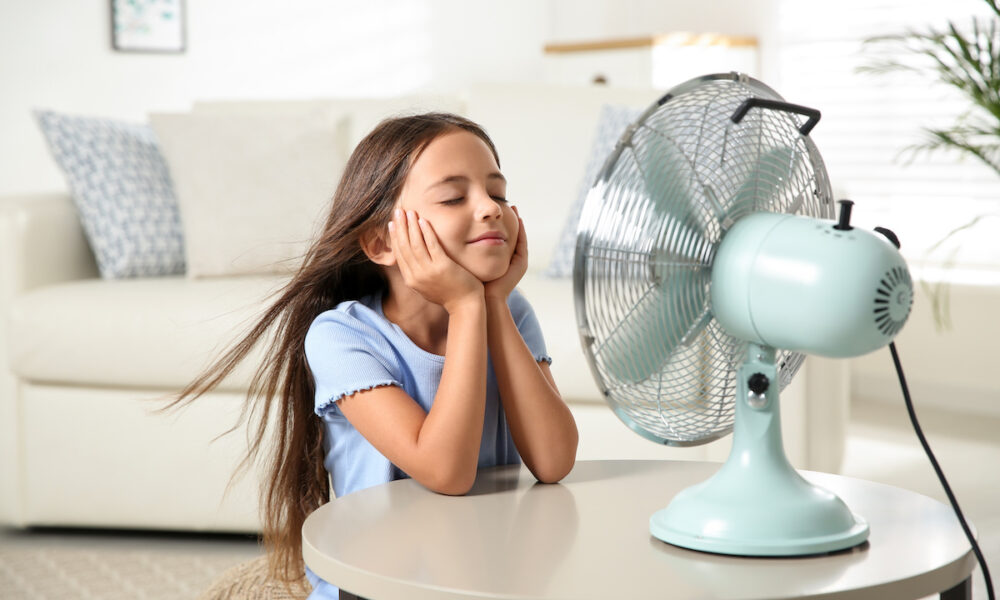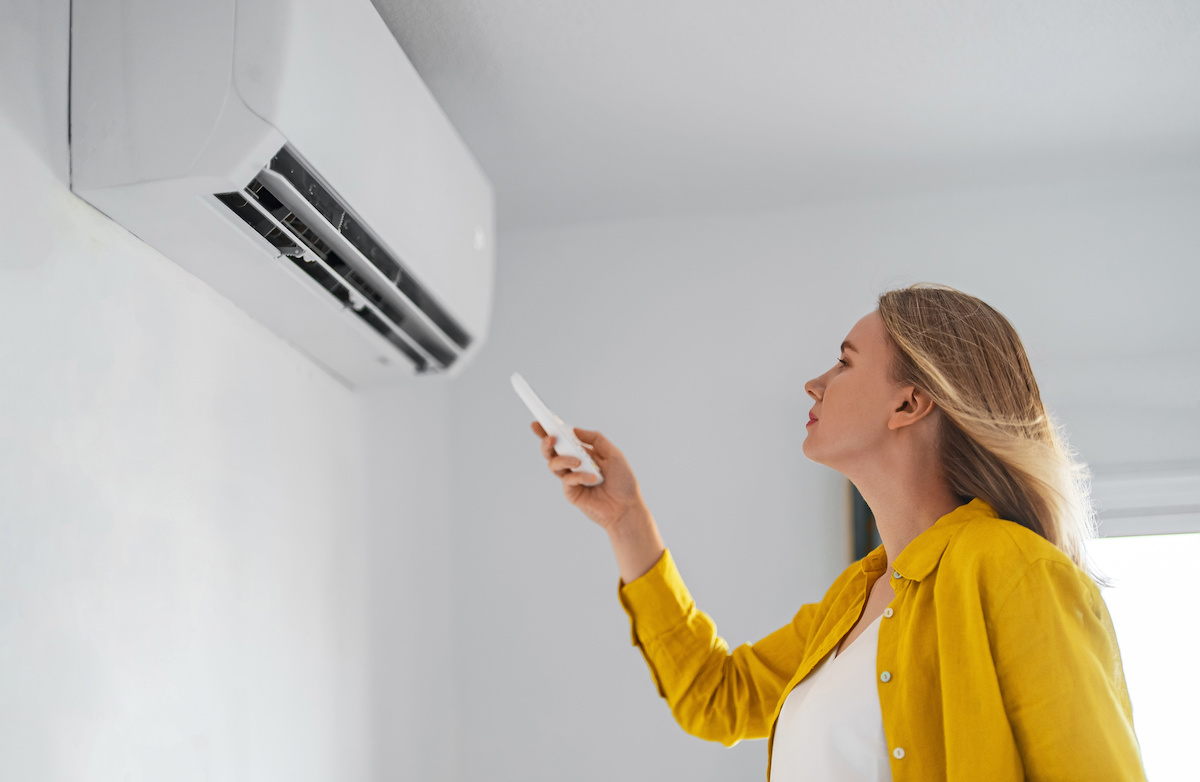
As the summer temperatures continue to soar, you might find yourself stuck in an uncomfortably warm home. But, there’s no need to fear, as there are solutions! In this post, we’ll explore how to improve your home’s air circulation. Dadz can turn your space into a cool and inviting sanctuary from the sweltering heat!
Why is Good Air Circulation Important?
Improving your home’s air circulation does more than just keep you cool during the hot summer months. It also:
- Enhances indoor air quality by reducing moisture and pollutants
- Helps prevent mold and mildew growth
- Boosts the efficiency of your heating and cooling systems
Understanding how to improve your home’s air circulation is the first step in creating a comfortable living environment. Let’s look at some effective methods on how to improve your home’s air circulation below.
Open the Windows and Enjoy the Breeze
You might be surprised at how effective your windows can be in improving your home’s air circulation. It’s not merely about opening them, but knowing when and which ones to open.
- During cooler hours, usually early morning or late evening, open your windows to let in fresh air.
- Create a cross breeze by opening windows that are directly across from each other.
It’s best to open your windows widely if you can. However, even cracking your windows can help with air circulation.
Invest in Ceiling Fans
While ceiling fans are a common fixture in many homes, strategically placing portable fans can significantly enhance air circulation.
- For optimum effect, place fans in areas where the breeze from the windows can’t reach.
- Consider using window fans that can push hot air out during the day and pull cool air in at night.
- To create a refreshing cross-breeze, place one fan at one end of the room to pull in cool air, and another at the opposite end to push out hot air.
- Remember to set your ceiling fans to run counterclockwise in the summer, which pushes cool air down to the floor.
Need help installing a ceiling fan? Reach out to us at Dadz today!
Install Vents and Exhaust Fans
Vents and exhaust fans can significantly improve air circulation, especially in areas prone to moisture like bathrooms and kitchens.
- Exhaust fans remove damp air and steam, helping to prevent mold and mildew.
- Properly placed vents can help circulate air throughout the entire home.
Maintain Your HVAC System
Your heating, ventilation, and air conditioning (HVAC) system plays a vital role in maintaining air circulation.
- Regularly change or clean your HVAC filters to keep them working efficiently.
- Get your HVAC system professionally serviced at least once a year to ensure it’s in good working condition.
Landscaping Matters
Believe it or not, how you landscape your property can affect your home’s internal temperature.
- Plant trees strategically to provide shade and reduce the amount of heat that enters your home.
- Use trellises or awnings with climbing plants to shade windows or walls exposed to direct sunlight.
Keep Your Ducts in a Row
Your home’s ductwork acts as the respiratory system of your house, facilitating the flow of air from your HVAC system into each room. Over time, these ducts can accumulate dust, pet dander, and other debris, negatively impacting your air quality and HVAC system efficiency.
Regular duct cleaning can:
- Improve air quality by removing accumulated pollutants from your ducts.
- Enhance HVAC efficiency by allowing air to flow more freely, reducing the energy demand on your system.
- Lower the risk of duct-related health issues, such as respiratory problems or allergies, by minimizing the circulation of irritants.
Plug in an Air Purifier
Air purifiers can play a pivotal role in improving the air circulation in your home. These devices remove pollutants, allergens, and particulates from the air. The result is cleaner, healthier air circulation.
- Choose a purifier that’s size-appropriate for your room for maximum efficiency.
- Consider models with HEPA filters, which can capture ultrafine particles.
Opt for Smart Thermostats
Smart thermostats are a fantastic way to enhance both the air circulation and energy efficiency of your home.
- You can program these devices to run your HVAC system at specific times, ensuring optimal air circulation when you’re home.
- Many smart thermostats can learn your schedule and preferences. It will automatically adjust to provide efficient air circulation and comfort.
- Through their app, you can control your home’s temperature remotely. This offers you greater flexibility and control.

The Downside: Negative Effects of Poor Air Circulation
While we’ve discussed the benefits of good air circulation, it’s also important to understand the potential consequences of neglecting this crucial aspect of your home’s environment. Poor air circulation can lead to a range of issues, from minor discomfort to more severe health concerns.
Health Hazards
The most immediate and noticeable effects of poor air circulation can be on your health. Stagnant, poorly circulated air can:
- Promote Allergen Buildup: Without proper air circulation, allergens such as dust, pollen, and pet dander can accumulate. This can lead to allergic reactions or asthma attacks.
- Foster Mold Growth: Furthermore, Poor circulation can lead to damp conditions, encouraging the growth of mold and mildew. This can further impact air quality and cause health issues.
- Increase Risk of Respiratory Problems: Constant exposure to polluted indoor air can lead to or exacerbate respiratory problems.
Comfort Concerns
Aside from the health implications, poor air circulation can simply make your home a less comfortable place to live. It can:
- Create Uneven Temperatures: Without proper air movement, some rooms might become overly warm, while others remain uncomfortably cool.
- Lead to Excessive Humidity: Poor circulation can lead to high humidity levels, making your home feel stuffy and potentially damaging your belongings.
- Cause Foul Odors: Stagnant air can allow unpleasant odors to linger in your home, while good circulation helps to disperse them.
Energy Efficiency and Cost
Poor air circulation doesn’t just affect your health and comfort; it can also hit your wallet:
- Strain on HVAC System: When air doesn’t circulate efficiently, your HVAC system has to work harder to maintain a comfortable temperature.
- Increased Energy Bills: An overworked HVAC system uses more energy, resulting in higher utility bills.
How to Improve Your Home’s Air Circulation: Call Dadz for Help
While there are many steps you can take on your own to improve air circulation, sometimes the help of a professional can make all the difference. Dadz’s expertise can be particularly valuable, offering tailored solutions to optimize your home’s air circulation.
Dadz can show you how to improve your home’s air circulation by:
- Installing new fans, vents, or exhaust systems in strategic locations to enhance airflow.
- Setting up smart thermostats for a more personalized and efficient approach to home cooling.
- Conducting a thorough electrical safety inspection to ensure all your systems are working correctly and safely.
Don’t let the heat get the best of you this summer. Reach out to a trusted, local electrician who can provide the professional services you need to maximize your home’s air circulation. With their help, you can transform your living space into a cool, comfortable, and healthy haven, regardless of the heat outside.